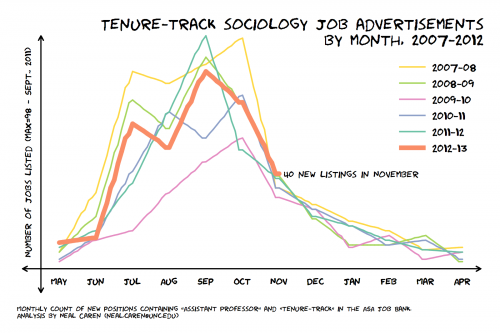For the last week of December, we’re re-posting some of our favorite posts from 2012.
In an effort to map the shape of the dual career challenge, the Clayman Institute for Research on Gender at Stanford University did a survey of 30,000 faculty at 13 universities. The study was headed by Londa Schiebinger, Andrea Henderson, and Shannon Gilmartin.
When academics use the phrase “dual career,” they’re referring to the tendency of academics to marry other academics, making the job hunt fraught with trouble. Most institutions are not keen to hire someone’s partner just because they exist. Meanwhile, the academic job market is tough; it’s difficult to get just one job, let alone two within a reasonable commute of one another.
So, what did the researchers find?
More than a third of professors are partnered with another professor:
When we break this data down by gender, we see some interesting trends. Female professors are somewhat more likely to be married to an academic partner (40% of women versus 34% of men), they are twice as likely to be single (21% are single versus 10% of men; racial minority women are even more likely), and they are only 1/4th as likely to have a stay-at-home partner:
On the one hand, since women are more likely to have an academic partner, the problem of finding a job for a pair of academics hits women harder. On the other hand, the fact that they are more often single makes choosing a job simpler for a larger proportion of women than men. (On anther note, if you’ve ever wondered why fewer female than male academics have children, there are several answers in the pie charts above.)
For women who are partnered with another academic, the data is starker than the 6 point difference above would suggest. The researchers asked members of dual-career academic couples, whose job comes first? Half of men said that theirs did, compared to only 20% of women. When it comes to balancing competing career demands, then, women may be more willing to compromise than men.
There is a lot more detailed information on academic couples and what institutions think of them in the report. Or, listen to Londa Schiebinger and the other researchers describe their findings:
Lisa Wade, PhD is an Associate Professor at Tulane University. She is the author of American Hookup, a book about college sexual culture; a textbook about gender; and a forthcoming introductory text: Terrible Magnificent Sociology. You can follow her on Twitter and Instagram.





















